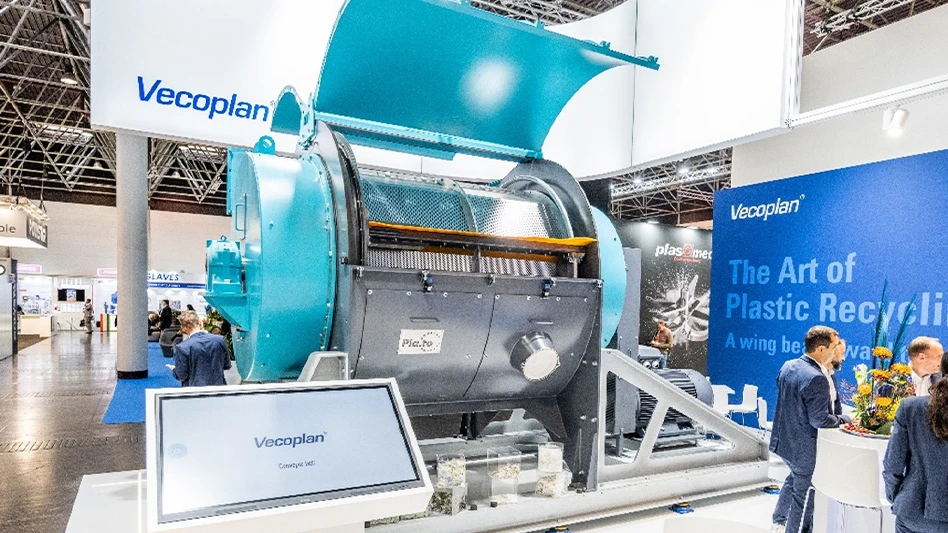One of the most challenging issues facing manufacturers of regulated or expiration-sensitive materials is finding a cost-effective and secure method for product destruction. Certified product destruction services historically have focused solely on ensuring the selected products do not enter the marketplace. Most companies have been willing to pay for these services to protect the value of their brands or to meet regulatory guidelines and have accepted this as part of their cost structure.
However, a new trend is emerging in certified product destruction: Companies are taking an innovative look at their waste streams and asking, "Is there value that can be captured in this item?"
These companies are addressing environmental concerns with certified destruction, which is spurring innovation, creating value, reducing risk and building competitive advantage. This change is being driven not only by the current environmental and economic conditions of today’s marketplace, but also by the emergence of sustainability initiatives as strategic imperatives for an increasing number of companies.
A SMALLER ENVIRONMENTAL FOOTPRINT
The negative environmental, economic and social impact of generating solid waste in the process of certified destruction has rightly become a more significant consideration for many companies. However, the important process of protecting brand value through certified destruction may not have to entail these downsides if the process is looked at with sustainability in mind. As availability of landfills decreases and costs of solid waste disposal increase, disposal of materials that may have measurable residual value can result in unnecessary costs and be a missed opportunity for maximizing a company’s return on its original raw material investment.
There are additional potential benefits relative to building brand value and reducing environmental exposure. As consumer demand for environmentally responsible products increases, real opportunity exists for enhancing a company’s sustainability value proposition by reclaiming materials from certified destruction for reuse into the original product or into another productive use in cases where closing the loop may not be possible from a technical or regulatory perspective.
TO THE BOTTOM LINE
Can a different approach to certified destruction improve a client’s bottom line? The answer is yes, in at least two ways. First, there is the cost-avoidance opportunity of not landfilling the material, which should reduce the price of the service. The second opportunity, if the materials cannot be re-used in the original product/process, is the potential of generating revenues from materials that may have value to a third party. In cases where a closed-loop reuse of the material is possible, the potential is even more compelling. In this case, recovery of already-spent resource dollars results in a reduction in the amount of virgin materials required for manufacturing the product.
If the existing product/process does not allow for reuse of reclaimed materials, this can signal an opportunity for multi-generational product planning that might eliminate the limitation. If the part or process can be redesigned to enable the use of reclaimed materials, this would have an even greater impact than simply improving the economics of certified destruction by enhancing the recyclability of the product overall.
Smart companies in a variety of industries also know that a strong environmental strategy can build a significant competitive and marketing advantage in their industries.
Certified destruction firms who have the knowledge, experience and the technical expertise to reclaim the valuable materials from products slated for destruction could have an advantage over firms who do not have the ability to do so themselves or who have relationships that can facilitate raw material recovery. Firms offering certified destruction services should offer a balanced approach to their clients, enabling the achievement of both their business and sustainability goals.
An example of how destruction firms can offer additional value to their product destruction clients is illustrated in a health care products manufacturer that turned to Nicos Polymers Group, Nazareth, Pa., for its product destruction needs.
BUILDING A CASE FOR RECOVERY
A leading manufacturer of health care products, including drug delivery and IV therapy, sought to develop a certified destruction program for out-of-date and off-spec solution-containing products that allowed for the recovery of the polymer container.
Among the challenges associated with this project were facilitating the certified destruction of the medical product, properly disposing of the solutions, recovering and processing the packaging material and securing a market for the reclaimed materials.
The manufacturer selected Nicos Polymers Group because we could provide certified destruction services and had post-industrial polymer reprocessing capabilities. This combination allowed the products to be securely destroyed while capturing the value of the plastic materials. Since the manufacturer selected a firm with plastic reprocessing experience, it benefited from our market knowledge and was able to offset the cost of the destruction service with the value of the reclaimed materials.
This approach to certified product destruction allowed for the proper destruction of the products and the disposal of waste materials as well as the recovery of valuable raw materials. This highlights the manufacturer’s leadership in environmental stewardship and enhances shareholder value through operational excellence.
A broader view of the economics of certified destruction as well as product stewardship can result in lowering and even eliminating costs associated with this necessary business process. Service providers that can provide a broad range of technical as well as marketing capabilities and an understanding of the logistics and economics of recovering materials may be more attractive to manufacturers as a result. The author is CEO of Nicos Polymers Group, Nazareth, Pa., and can be contacted at (610) 614-1400 or at kevin@nicospolymers.com.
Latest from Recycling Today
- Equipment from the former Alton Steel to be auctioned
- Novelis resumes operations in Greensboro, Georgia
- Interchange 360 to operate alternative collection program under Washington’s RRA
- Waste Pro files brief supporting pause of FMCSA CDL eligibility rule
- Kuraray America receives APR design recognition for EVOH barrier resin
- Tire Industry Project publishes end-of-life tire management guide
- Des Moines project utilizes recycled wind turbine blades
- Charter Next Generation joins US Flexible Film Initiative





